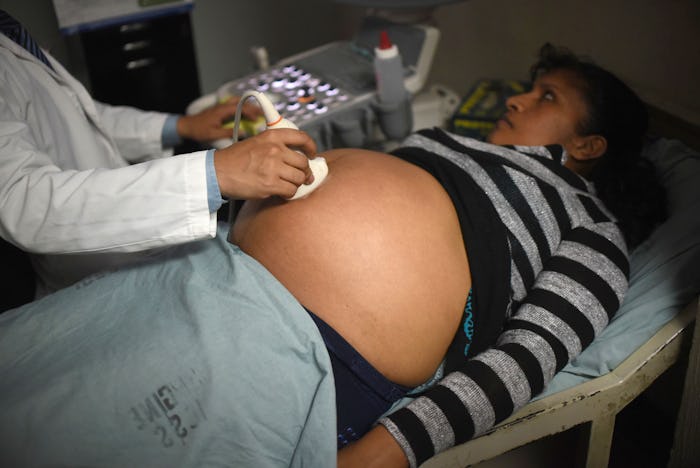Life

Can Zika Go Undetected? New Findings About Its Delayed Effects On Babies Are Terrifying
The Zika virus appears to become more dangerous, and more terrifying, with each passing day. Think about it: This time last year very few of us had heard of Zika and the relationship between the virus and microcephaly — a condition which affects fetuses and unborn children and causes babies to be born with abnormally small heads when a pregnant woman is infected — was hypothetical, at best. But today things are different: Zika has been found in 42 countries and territories, and the link between Zika and microcephaly has been confirmed. But is microcephaly the only birth defect or can Zika go undetected in “healthy” babies and newborns and affect them later in life? Unfortunately, that may be the case.
In April, doctors and researchers learned a disturbing truth: Zika eats fetal brain tissue and, according to the Wall Street Journal, it has the ability to shrink or destroy entire lobes. (Lobes which control things like thought and vision and basic bodily functions.) And Jeanne Sheffield, director of maternal-fetal medicine at the Johns Hopkins School of Medicine — and a microcephaly counselor — said this is a new concern entirely:
These aren’t just microcephaly [cases,] like a slightly small head. The brain structure is very abnormal.
What’s more, most child development experts, like Margaret Honein, an epidemiologist on the CDC’s pregnancy-and-birth-defects task force, agree that Zika could cause other birth defects that won’t be known until these children grow up: "We do anticipate there would be a spectrum of outcomes," as there may other problems with the brain that don’t manifest as microcephaly.
Just five days ago, the Centers for Disease Control and Prevention updated its Zika virus homepage, adding a registry and its concerns about “other” birth defects:
[Contracting the] Zika virus infection during pregnancy can cause microcephaly and other severe fetal brain defects. Infection during pregnancy has also been linked to adverse outcomes including pregnancy loss and eye defects, hearing loss, and impaired growth in infants.
Since October, more than 1,000 newborns have been born with birth defects that are suspected to be linked to Zika, and the severity of these defects ranges from difficulty seeing, walking, and talking to epilepsy and possible death. Additionally, Zika is projected to spread across the Southern United States and the Northeast. Congress will hopefully approve funding before that happens so that the government can better combat this public health crisis.